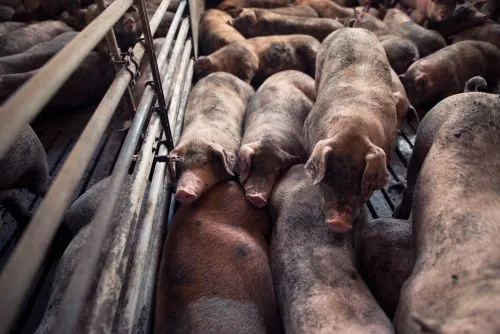1329

Simultaneous considerations regarding the cost of living and concerns related to climate change are predominant among consumers, changing how and what they buy.
Costs and climate changes stimulate
Ernst & Young (EY) consultancy has published its 13th Future Consumer Index (FCI) study, identifying changing consumer behaviors and spending patterns amid the crises of the cost of living and climate changes.
The ongoing cost of living crisis emphasizes the budgets of already stretched consumers, while climate changes lead consumers towards more sustainable purchases.
"The latest EY FCI reveals that rising food prices prompt consumers to prioritize essentials and optimize budgets for food," said Marie Bos, senior analyst in the global consumer industry at EY, to FoodNavigator.
EY's FCI unveils the latest information related to the food industry, detailing how the cost of living crisis prompts consumers to reassess how they buy food and beverages and what purchases they make.
Four-fifths (80%) of global consumers remain concerned about their finances, and nearly half (46%) have expressed extreme concern about climate change, according to the Index, which surveyed 22,000 consumers from 28 countries.
More than half (54%) of global consumers plan to reduce their future purchases. The primary factors reducing their consumption patterns are the need to save money (73%). FCI results reveal a close link between the economy and the environment, with 67% of respondents expressing deep concern for the planet's fragility as the main reason behind their intention to change consumption patterns.
Over half (56%) of respondents believe that consumers should compel companies to achieve better social and environmental outcomes. In comparison, 73% of respondents state that companies must lead ecological change, and 77% say that governments should be responsible for leading this climate review.
Nearly half of consumers (49%) also believe that new purchases are unnecessary. Of those surveyed, 80% reveal that they intend to spend less on socially related goods, with 41% planning to stay home more, representing a 6% increase from October 2022.
Budgets are changing spending habits
The cost of living crisis has affected consumer spending in the food industry, as FCI results show. The latest data suggests that consumers are narrowing down their lists of necessities to meet their stretched budgets, opting for less expensive brands and discontinuing delivery subscriptions, leading to increased foot traffic in stores and a greater focus on store brands by retailers.
More than half (57%) of consumer respondents are concerned about the rising costs of food and household goods, 49% buy only what they need, and 39% plan to spend less on food delivery services in the next three to four months. Consumers are thinking about what represents value and necessity. The survey found that 29% of buyers evaluate what is essential, indicating that these lists are getting shorter.
Private label products are losing purchasing power with consumers, as 64% of consumers believe private labels meet their needs as well as branded products, and 61% say private labels help them save money. "As the price difference narrows between private label and branded food products, food consumers will buy based on price and not maintain brand loyalty," Bos said.
Consumer shopping baskets are also changing, with consumers stating that they will buy fewer snacks. Jon Copestake, Global Consumer Senior Analyst at EY, said this is "likely a result of ongoing price increases in the category and fresh foods becoming more accessible as inflation stabilizes."
Additionally, these evolving purchases likely reflect consumers' desire to be healthier overall, Copestake said. Almost a third of consumers, 32%, anticipate that their physical health will improve.
However, trust is crucial, as consumers will seek brands they trust, and 35% of consumers say they will pay extra for products from their trusted food brands, representing a 10% increase from February 2022. As we approach the end of 2023, Bos commented on the importance of trust, "this will be essential in the direction of Q4, as companies intend to invest more in promotional activities and marketing to regain shares lost to private labels and minimize future gains."
Personal experiences related to climate change influence purchases
FCI also reveals the importance of climate change in consumers' buying habits, indicating that consumers are considering changing their lifestyles after being personally affected by the climate crisis.
One of the main findings is that more than half (51%) of consumers have been affected by changes in product prices. Adapting to their needs related to climate change, these respondents consider changing foods, as the environmental crisis has increased costs or reduced availability. As a result, 29% have already made these choices and had to change the foods they consume. "More importantly, and the bigger story is how many consumers are considering changing the foods they consume, which is 42% globally," Bos said.
Consumers want to buy better products for both themselves and the planet. However, older consumers are more active in adopting lifestyle behaviors to reduce their impact, such as bringing reusable bags to grocery stores and recycling or reusing packaging after use.
Compared to the US and China, EY found that European consumers were the most active in specific behaviors. However, younger consumers from Generation Z are more likely to spend more sustainably and scrutinize companies' environmental claims.
Another major change reported by EY is the need for consumers to buy more bottled water, with 27% of consumers saying they are asked to buy more bottled water, while another 32% plan to do so.
Generational differences are also prominent in the purchase of bottled water. "Older consumers are more holistic, while younger consumers are much more interested in buying sustainably and carefully examining brands in terms of their impact or reformulation efforts," said Copestake. For example, older consumers are more likely to engage in activities such as recycling and water conservation.
Impact on food retailers
Retailers' food purchasing and storage decisions will also undergo significant changes. "This will affect storage and purchasing decisions," Bos said.
FCI sees that 88% of consumers make efforts to waste less food. In addition, 39% plan to spend less on snacks, and 34% of consumers plan to buy more fresh food.
"Retailers will need to align with these behaviors in category management, purchasing strategies, planograms, and retail formats to become more sustainable overall," Bos said.
Over three-quarters (78%) of consumers also said they want companies to play a more significant role in ensuring a sustainable future, as consumers feel they can only do so much. "There is an opportunity here to reduce their sustainable impact," Bos detailed.




